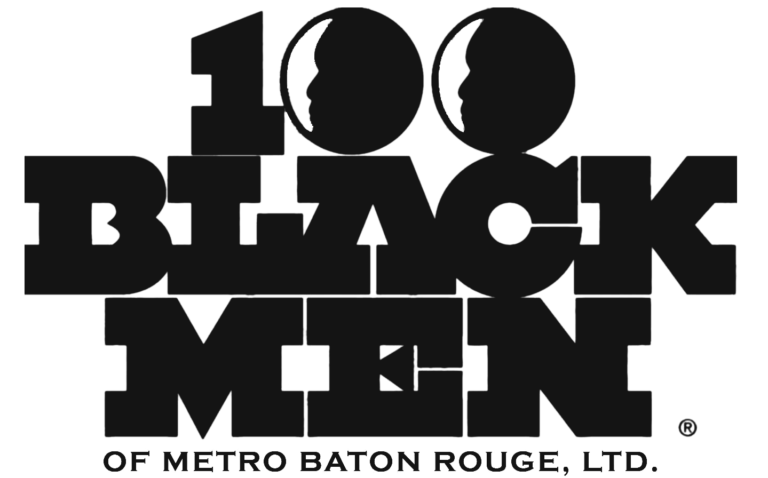The Mission of 100 Black Men
Our Vision in Baton Rouge
The 100 Black Men of Metropolitan Baton Rouge, Ltd. is a non-profit organization where African-American males step forward and assume roles of community leadership, responsibility, and guidance. The organization serves as a catalyst to empower African-Americans to individually and collectively reach their full potential by maximizing their sources that foster and enhance achievement in education, economic and community development.
A Proven Record Serving black youth in Baton Rouge
100 Black Men of Metro Baton Rouge, LTD. (The 100) is a non-profit organization through which African-American males step forward and assume the roles of community leadership, responsibility, and guidance. The organization serves as a catalyst to empower youth to individually and collectively reach their full potential by maximizing the resources that promote and enhance achievement in education and economic and community development.
The mission of The 100 is to give substance to a shared vision that fosters and develops model programs that enrich the community by enhancing the lives of African-American youth.
Twenty-nine years ago, a small group of African-American men chartered the organization in hopes of creating a vehicle that would serve to improve the social and economic conditions of African-Americans in the Baton Rouge community, particularly among youth. The organization’s guiding principle is that Black Men must take responsibility for improving the conditions of our communities and must educate and empower youth to do the same.
Since the 100’s inception three decades ago, The organization has remained true to its mission, and we have impacted thousands of families and tens of thousands of youth through our programs and events. For a decade during the 90’s and 2000’s our Back to School Expo provided school supplies and health screenings for up to 5,000 youth annually. Our Anti-violence and Go Vote billboards have positively influenced hundreds of thousands of local Baton Rougeans and tourists passing through the city.
The 100’s programs are all aligned within four core areas: Mentoring, Education, Health and Wellness, and Economic Empowerment. Programs under these pillars have:
Helped young people score high enough on the ACT exam to qualify for TOPS, thereby earning college admission while saving their families thousands of dollars in tuition fees.
Taught financial literacy and responsible money management strategies to marginalized youth with little or no history of family wealth.
Provided mentorship opportunities for thousands of At-Risk young men without positive role models in their lives.
We have taught and advanced healthy living concepts and practices to a population of youth and adults whose health outcomes are usually on the negative side of the polling stats. We have trained over 1,000 young males aged 14-19 from a healthy masculinity-teen pregnancy prevention course.
The History of 100 Black Men
100 Black men of America, Inc.
The overall concept of “The 100” began in 1963 in New York City when a group of concerned African American men began to meet to explore ways of improving conditions in their community. These visionaries included businessmen and industry leaders such as David Dinkins, Robert Mangum, Dr. William Hayling, Nathaniel Goldston III, Livingston Wingate, Andrew Hatcher, and Jackie Robinson. On October 2, 1986, representatives from 100 Black Men Chapters converged in Washington, DC, for a final meeting to establish a national organization. During previous meetings, they determined the structure, governance and model that would provide the most effective physical and financial resources to support the communities and Chapters. At the final gathering, theorganization’sname–100 Black Men of America, Inc.–was unveiled and attendees elected four accomplished, professional men from within their ranks to serve as its first and founding officers.
Each of the four were selected based on their demonstrated commitment to give back in a holistic way that addressed the educational, social, emotional, and cultural needs of youth intheir own communities. They put their hands to the plow and did the hard work necessary to establish a foundation for a network of Chapters in their infancy, which today is an international nonprofit organization that positively impacts more than 125,000 youth across the United States and abroad. Throughout our history, the leadership of 100 Black Men of America, Inc. has been impeccable. The men chosen as national leaders all have contributed to the growth and strength of the organization. Their unique contributions have helped The 100 to become one of the premiere mentoring organizations anywhere. Consider the impact each leader has made. On May 27, 1987, in Atlanta, Georgia, this newly formed mentoring organization held its first national conference and introduced itself to the nation. Noted speakers included the late Alex P. Haley and the late Honorable Maynard H. Jackson.
100 Black Men of Metro Baton Rouge
In late 1992, a small group of African-American men began meeting to explore the possibility of creating a Baton Rouge chapter of 100 Black Men of America. The initial group consisted of:
Brace B. Godfrey, Jr., Jaubert Ambeau III, Clarence R. Russ, Jr., C. J. Blache, Don J. Hutchinson, and Hall L. Davis IV.
The group quickly expanded, and in February 1993, the group voted to seek affiliation with 100 Black Men of America, Inc. On May 5, 1993, 100 Black Men of Metropolitan Baton Rouge, Ltd. was formally chaptered by the 100 Black Men of America as its 34th chapter in the United States. Brace B. Godfrey, Jr. served as founding president and immediately became a member of the national board of directors.
The charter Board of Directors included: Brace B. Godfrey, Jr., President, Larry D. Smith, Vice-President, Alvin J. Cavalier, Secretary, Darryl D. Thomas, Treasurer, Michael R. D. Adams, C. J. Blache, Reginald R. Brown, Sr., Hall L. Davis IV, Don J. Hutchinson, Robin A. Nesbitt and Samuel Williams.
